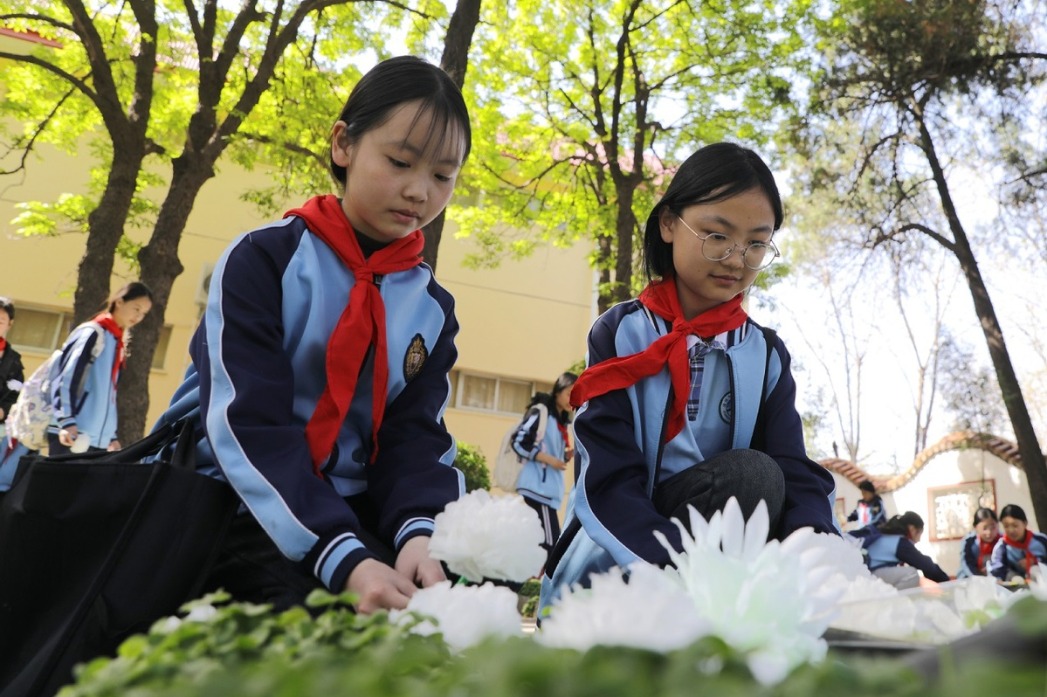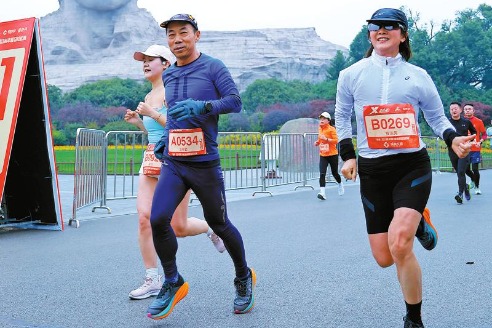Experts hail China's focus on innovation
Efforts to foster a promising economic outlook expected to benefit other nations





China's focus on innovation and the momentum toward new quality productive forces foster a promising economic outlook, positioning it as a growth engine that benefits other countries, global experts say.
China made major efforts to promote innovation-driven development and upgraded the industrial structure, said Premier Li Qiang, who delivered the Government Work Report at the opening meeting of the third session of the 14th National People's Congress in Beijing on Wednesday.
According to the work report, China will develop new quality productive forces in light of local conditions and accelerate the development of a modernized industrial system.
Pursuing integrated advancements in technological and industrial innovation and pressing ahead with new industrialization, are among key priorities.
Jelena Grubor Stefanovic, director of the representative office of the Serbian Chamber of Commerce and Industry in China, said the government's focus on innovation and new quality productive forces, alongside its emphasis on fiscal stimulus, green technology, and infrastructure will foster a positive and promising economic outlook, despite trade tensions and geopolitical risks.
"The global economic environment remains quite unpredictable, but with China's efforts to open up and its ongoing structural reforms, I believe… the outlook remains strong for 2025 and beyond, particularly as domestic demand becomes more of a driving force behind growth," she said.
"It's important to note that as China shifts to high-quality development, the GDP is not the sole measure of economic progress but remains an important one indeed," Stefanovic said, adding that the 5 percent GDP target "reflects a measured, pragmatic approach to growth, balancing ambition with caution".
China's GDP reached 134.9 trillion yuan ($19 trillion) in 2024, a year-on-year increase of 5 percent, data from the National Bureau of Statistics has shown.
"It's an indicator of the government's commitment to maintaining sustainable growth while addressing both domestic consumption and the need for continued technological and industrial upgrades," she said.
"China has a proven track record of resilience, and despite global challenges, it remains a key growth engine," Stefanovic added.
The Government Work Report aligns with the Central Economic Work Conference held in December 2024, said Sourabh Gupta, a senior fellow at the Institute for China-America Studies in Washington, DC.
Gupta said China aims to move toward new quality productive forces-led growth, adding that "technology-intensive manufacturing growth, the creative digital economy, and consumer demand will hold China in good stead".
Productive investments
Gupta said the measures outlined in the report "will not only solidify balance sheets and manage financial stability risks but will also feed into the real economy by way of productive investments that generate their own consumptive growth".
Cavince Adhere, a Kenyan expert on international relations, in particular China-Africa relations, said the report underscores the country's dedication to advancing peace and development as China, by supporting investments and promoting trade, has become the major trading partner of more than 150 countries and regions.
It is expected that China will play a more important role in the global arena, he said.
China is keen on continuing to implement the Belt and Road Initiative as African countries have massively benefited from the BRI with many infrastructure projects completed, Adhere said.
"The growth of the Chinese economy is an opportunity for the world," he said.
The work report stresses that China will establish a mechanism to increase funding for industries of the future and foster industries such as biomanufacturing, quantum technology, embodied AI, and 6G technology.
Rujipun Assarut, a senior researcher with the Kasikorn Research Center in Bangkok, said he expects more innovation cooperation between China and Thailand, particularly in automotive, and information and communications technology.
Yang Wanli in Bangkok and Shao Xinying in Beijing contributed to this story.
































